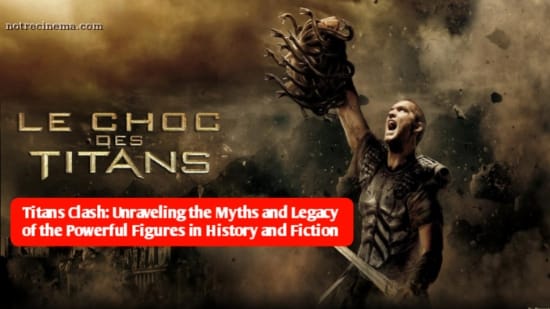Titans Clash: Unraveling the Myths and Legacy of the Powerful Figures in History and Fiction, the Titans were the primordial gods who ruled the world before the Olympians
Titans Clash
The term “Titans” evokes powerful imagery, be it from ancient mythology, modern media, or even sports and industry. Titans are universally recognized as beings or entities of extraordinary strength, influence, and authority. But what does this term truly represent, and why does it resonate so deeply across multiple domains of culture and society?
The Mythological Titans
In ancient Greek mythology, the Titans were the primordial gods who ruled the world before the Olympians. These deities were the children of Uranus (Sky) and Gaia (Earth), and their legacy is central to many ancient narratives. The twelve original Titans, led by Cronus, overthrew their father Uranus in a dramatic coup, only to be later overthrown themselves by Zeus and the Olympian gods in the epic Titanomachy.
The Titans, symbolizing primal forces of nature and time, were often seen as chaotic and uncontrollable, embodying both creation and destruction. The eventual defeat of the Titans by the Olympians was not just a mythological power shift, but also a representation of order overcoming chaos, and the establishment of human-centric gods with more relatable stories.
Modern Media’s Titans
The legacy of the Titans continues in modern storytelling, where the term has been used to describe everything from superhero teams to monstrous creatures. One of the most popular contemporary examples is in the world of comic books and television: the “Teen Titans” franchise from DC Comics. This group of young superheroes, including characters like Robin, Starfire, and Beast Boy, has captivated audiences for decades with their battles against villainous forces. The name “Titans” in this context reflects the team’s immense strength and their pivotal role in the broader superhero universe.
Another widely popular use of the term is in the Japanese anime and manga series Attack on Titan. Here, giant humanoid creatures known as “Titans” terrorize humanity, forcing survivors to live behind enormous walls to protect themselves. The series has garnered international acclaim for its intense action, philosophical questions about humanity, and its complex portrayal of survival.
In sports, the term “Titans” is frequently used to describe teams with formidable reputations, most notably the Tennessee Titans in the NFL. The name itself evokes a sense of strength, resilience, and the ability to overcome great odds, key traits that any sports team would aspire to represent.
Titans of Industry
Outside the realm of fiction, the term “Titans” is often applied to individuals or companies that dominate industries with exceptional power and influence. From tech giants like Apple and Amazon to industrial magnates like Elon Musk and Jeff Bezos, these modern-day “Titans” shape economies, global markets, and innovation. The phrase “Titans of Industry” was first coined during the Industrial Revolution to describe powerful businessmen like John D. Rockefeller and Andrew Carnegie, whose empires reshaped modern business and set the stage for the global corporations we see today.
These individuals and companies wield unparalleled influence, driving forward technological advancements, market trends, and even cultural shifts. While they provide the world with innovation and economic growth, their dominance often sparks debates about income inequality, corporate ethics, and the impact of monopolies on small businesses.
Cultural Titans: Artists, Thinkers, and Leaders
The concept of a “Titan” extends beyond industries and myths to refer to influential figures in the arts, philosophy, and politics. Thinkers like Aristotle, Plato, and Confucius are considered Titans of philosophy, having laid the intellectual groundwork for civilizations. Similarly, leaders like Winston Churchill, Mahatma Gandhi, and Nelson Mandela are seen as Titans of politics for their indelible impact on history.
In the arts, figures like Michelangelo, Shakespeare, and Beethoven are often referred to as Titans for their revolutionary contributions to their respective fields, transforming how we perceive music, theater, and visual arts. These individuals not only excelled in their crafts but also redefined the standards of excellence, leaving behind legacies that continue to inspire future generations.
Titans of the Future
As we look toward the future, the idea of Titans will continue to evolve. Whether it’s the rising stars of science, such as the pioneers of artificial intelligence and biotechnology, or the next wave of cultural icons in music and film, there will always be figures that rise above the rest, shaping the world in profound ways.
One area to watch is the space industry, where modern-day Titans like Elon Musk (SpaceX) and Jeff Bezos (Blue Origin) are racing to make space travel and colonization a reality. The dream of interplanetary expansion, a realm once dominated by science fiction, now seems within reach due to these forward-thinking individuals.
In entertainment, the concept of virtual Titans is emerging, with AI and virtual reality creating immersive experiences that challenge traditional storytelling. Whether in gaming, film, or education, these technological Titans are set to revolutionize how we interact with digital worlds.
Conclusion
The term “Titans” has transcended its mythological origins to encompass a wide variety of meanings in modern culture. Whether we are speaking of ancient gods, towering sports teams, tech moguls, or cultural icons, Titans symbolize power, influence, and the capacity to shape the world around them. As humanity continues to evolve, so too will the role of these Titans, both real and imagined, in shaping our future.
How did you like the information given in our article today, please tell us in the comment section and for more such posts, follow our page The News House, thank you
Reed more… TITANS SHOP: LAUNCHES AS A ONE-STOP DESTINATION FOR SPORTS FANS AND POP CULTURE ENTHUSIASTS


